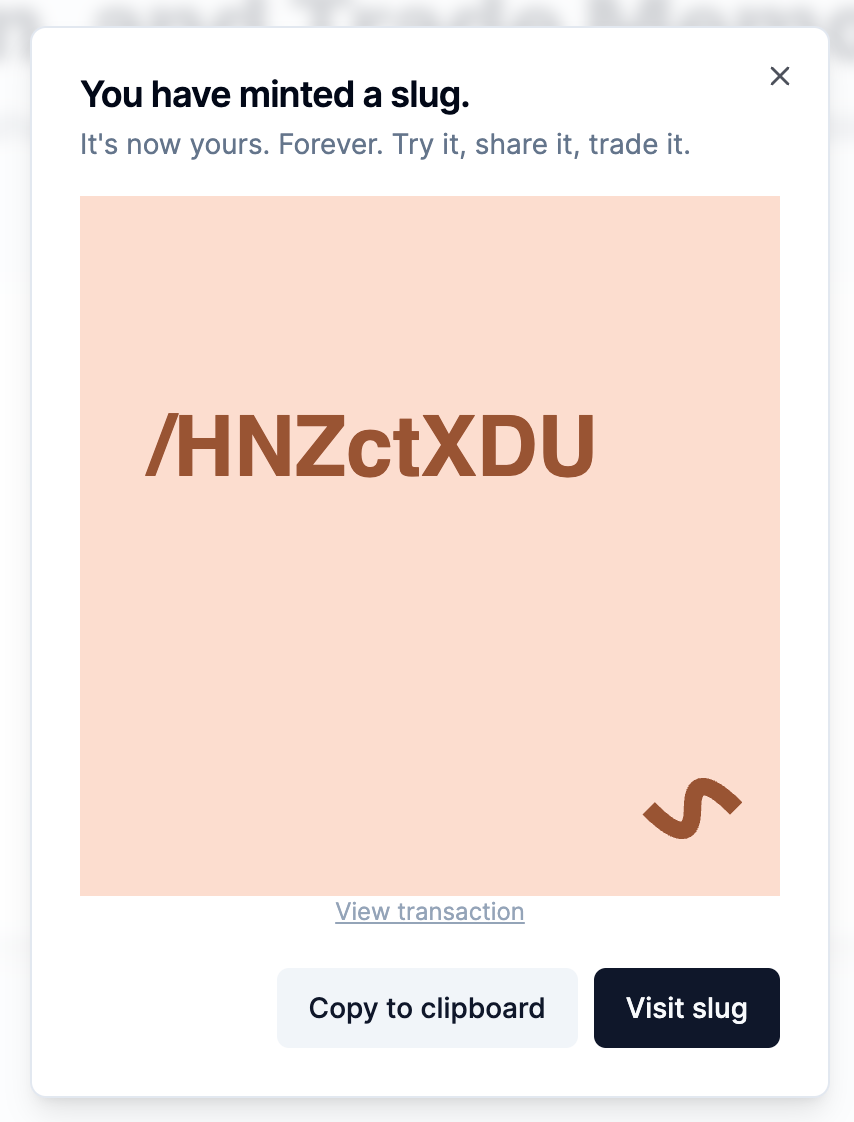GM,
First, I have some good news to share. Recently, I received an invitation from Commonwealth Publishing Group to be the reviewer for the Chinese edition of the book "Read Write Own." Blocktrend has previously discussed this book both in articles and on the podcast. In the book, the author, Chris Dixon, starts with the three stages of internet development to explain why blockchain is the next generation of the internet. This writing style suits my taste very well, and I believe it is also a storytelling method that Blocktrend readers will enjoy.

As someone who has read both the English and Chinese versions, I recommend everyone to buy the Chinese version, even if you've already read the English one! Why? Because the translation is fantastic. The translator, Liu Weiren, has made many of Chris Dixon's theories easier to understand and remember. For example, the famous Attract-extract cycle theory, which I used to translate as "吸引和榨取循環," has been translated by Liu Weiren as "韭菜循環" (Chive Cycle). When I saw it, I was truly amazed!
Yes, it is the Chive Cycle. Liu Weiren used fewer words to convey a more precise concept. It's incredibly impressive. Just this "Chive Cycle" alone will make discussing it with friends much easier for you in the future. This book is scheduled to go on sale on July 31, and I recommend pre-ordering it from major book platforms. Now, let's get to the main topic. This article discusses Google's announcement to shut down the goo.gl URL shortening service and the decentralized alternatives.
Google URL Shortener
Have you ever created a short URL? This URL is the Wikipedia introduction page "https://en.wikipedia.org/wiki/URL_shortening." If you shorten it to "https://w.wiki/U," it becomes much simpler and easier to remember.
In the 2000s, as social platforms took off, innovative URL shortening services emerged alongside them. Nowadays, there are many URL shortening services on the internet, such as Bitly, PicSee, or the basic functionality of PPT. Google’s URL shortening service goo.gl was a favorite tool for many people. According to the announcement when the service was launched in 2009:
As social platforms like Twitter became popular, people increasingly shared links online ... URL shortening services compress longer URLs into fewer characters, making them easier to share. Especially since Twitter has a character limit for tweets, short URLs save you space to express more of your thoughts, which is why people use them.
Short URLs are not only aesthetically pleasing but also a marketing tool. For example, Shopee creates sho.pe short URLs to package URLs with discount codes and tracking tags to prevent the URLs from being too long and affecting people's willingness to share them. For companies, short URLs are not just about brand image; they are sometimes permanent links. No matter how the actual URL changes, as long as the list of short URLs is regularly maintained, you can avoid broken links. But this assumes that the URL shortening service doesn’t shut down.
Most people think that services from big companies are more reliable, but this is not the case. Last week, Google announced that it would completely terminate the goo.gl URL shortening service on August 25, 2025. After that day, all goo.gl short URLs will turn into "404 error pages."
Ultimatum
According to a report by iThome:
Google announced this week that it will be shutting down the link capabilities of goo.gl on August 25th of next year... Launched in 2009, goo.gl has been one of the most popular URL shortening services in the market. Google closed the goo.gl service in 2019, meaning users could no longer create new short URLs based on goo.gl, but existing short URLs could still link to the correct websites. This week's announcement means that starting from August 25, 2025, entering a goo.gl short URL will no longer direct to the correct website but will instead display a 404 error page.
Why is Google shutting down the URL shortener? Fang Xuan, co-founder of the Taiwanese URL shortening service PicSee, analyzed that URL shortening services have led to troublesome fraud issues, but the final straw was that they were not profitable. Now, Google has issued the final ultimatum: "If users do not migrate, don't blame us for being rude."

Moving online is not any easier than moving physically.
URL shortening services are like a phone book of URLs. This book records the relationship between original URLs and their short versions, and more advanced versions include details like the creator and expiration date. However, the most complete "phone book" exists only on Google’s own servers, with some fields possibly being exclusive to Google.
Google might say, "Users can export their short URL lists and take all the mappings with them."
Google seems sincere, but without other URL shortening services providing import functionality, users opening the file would likely still have to manually enter each URL, recreate the short URLs, and then go back to edit their original posts from years ago. Just thinking about it is exhausting. If you previously asked influencers to help with traffic or advertised on other websites, do you now have to ask them to make the changes again? Thinking about this, everyone would just decide it’s not worth it.
Accumulating small issues is the internet norm of 2024. Major service providers are well aware of this. Whether it’s blogs, photo albums, or cloud storage, even the most popular services can't escape the fate of shutting down. Users are forced to repeatedly abandon their digital footprints.
Seeing goo.gl shutting down, netizens began to organize alternative solutions. But my first reaction was, "Why hasn’t anyone made a decentralized version?" Turns out, I found a decentralized URL shortening service—Slugs—but it has very few users 😂.
Decentralized URL Shortening
Slugs, translated into Chinese as 蛞蝓 (slug) or 鼻涕蟲 (snail), is actually a term used in the news industry to refer to the abbreviation of an article. Below is a CNN news link; the segment at the end is the URL's "slug." You can see it refers to a report published on July 22, 2024, about U.S. President Biden announcing his withdrawal from the election.
https://edition.cnn.com/politics/live-news/joe-biden-election-drop-out-07-22-24
Slugs focuses on on-chain URL shortening services, managing short URL registration through smart contracts and placing the "phone book" that records the mapping of original URLs and short URLs on the blockchain. Let’s look at how it works. The image below shows the Slugs homepage, where users must connect their wallet to use the service.

In the interface, there are two blank fields for pasting the original URL and specifying a custom short URL. If you don’t specify a custom name, the cost of creating a short URL is the equivalent of $0.05 in ETH, roughly 1.5 NTD. Although it's not free, the price is quite affordable. The gas fee for the operation is so low it can be ignored. Once the payment is completed, Slugs will display the short URL on the page. For example, the short URL for the article you are reading is https://s.box/HNZctXDU.
What’s special about Slugs is that it also mints an NFT representing the short URL and transfers it to your wallet, making the short URL exclusively yours. The owner of the short URL can resell it to others through NFT marketplaces like OpenSea. If you buy my short URL NFT, you become the owner of the short URL. By returning to the Slugs website and connecting your wallet, you can re-edit the original link of the short URL and redirect it.

This has created an unprecedented market for trading short URLs. Previously, people traded Web2 DNS domain names or Web3 ENS domain names. Slugs combines both, appearing as familiar Web2 short URLs on the surface while being backed by Web3 NFTs representing digital ownership. It helps people seamlessly transition and enjoy the benefits of decentralization at a very low cost.
Once Slugs goes live, it will operate permanently on the blockchain. Even if the development team stops maintaining it, as long as Slugs retains ownership of the s.box domain, the short URLs created by users will not break.
In theory, Slugs should have become extremely popular during the days following goo.gl's announcement of its complete shutdown. However, according to the on-chain activity dashboard Dune Analytics, Slugs has had single-digit usage in the past few days, with almost no one globally noticing it, let alone recognizing its potential to become a decentralized alternative to Google’s URL shortener.
Although Slugs' short URL management interface is still quite basic, and the product has a higher entry barrier compared to similar services, if you are tired of digital migrations or want to experience the minting and transferring of short URL NFTs, you might as well give this decentralized URL shortening service a try through my Slugs referral link.
Blocktrend is an independent media platform sustained by reader subscription fees. If you find Blocktrend's articles valuable, we welcome you to share this piece. You can also join discussions on our member-created Discord or collect the Writing NFT to include this article in your Web3 records.
Furthermore, please consider recommending Blocktrend to your friends and family. If you successfully refer a friend who subscribes, you'll receive a complimentary one-month extension of your membership. You can find past issues in the article list. As readers often inquire about referral codes, I have compiled them on a dedicated page for your convenience. Feel free to make use of them.



